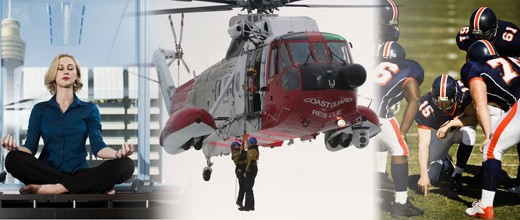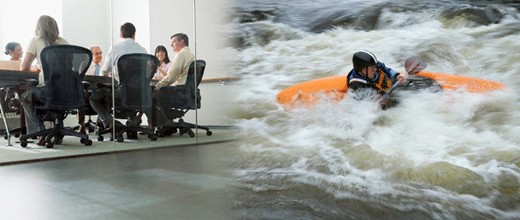Website sections:
- Core Concepts
- Projects
- Resources
- Homepage
- Contact Information
Current section's content:
- About Core Concepts
- Effective Higher Education Defined
- Educational Plus Professional Skills and Areas of Expertise
- Educational Plus Professional Skills Attaining Benefits
- Effective Higher Education Conceptual Platform
- Effective Higher Education Core Principles
- EffectiveHigherEducation.org Website Focus




















Educational Plus Professional Skills and Areas of Expertise
In professional and personal development related areas, knowledge and skills complement each other. Lack of skills can render knowledge less effective, and lack of knowledge can reduce usefulness of the skills that are being applied.
Accordingly, both knowledge and skills are needed for higher education to be effective and to produce value to an individual. So, preferably, knowledge and skills should be also attained in a complementary manner.
Further, the skills that are needed for attaining higher education and using it effectively in the workforce and in professional development related areas are to a large degree related to material that can be attained on higher education level. Some of the relevant disciplines are psychology, philosophy, communication, different branches of arts, organizational behavior, management, marketing, finance, mathematics, information technology, computer engineering and computer science.
Below is a list of skill areas that are needed for attaining higher education and using it effectively in the workforce and in professional development related areas – skills, that meet both students and employers' needs. This list is named Educational Plus Professional Skills (EduPlusPro Skills for short) and the complementary list Educational Plus Professional Areas of Expertise. These names help to emphasize the overlaps between the professional and educational aspects of the skills and expertise that are being attained.
Further, Educational Plus Professional Skills and Educational Plus Professional Areas of Expertise as names and concepts also help to emphasize important parts of this website's focus: combining learning with taking an active role in the development of skills and knowledge attainment projects. These areas will be explored further under the Core Concepts of this website.
The skills that are being listed here should not be confused with the 21st century skills, which is a set of core competencies that can help students to succeed. These two concepts were developed independently and for different age groups of learners.
Further, similarly to other concepts that are being addressed here, the initial lists form a hypothesis that will be researched and developed further as needed. Thus, the list presented below will remain work in process and as such is subject to changes.
Educational Plus Professional (EduPlusPro) Skills
- As an educational foundation, at least a general knowledge and understanding of humanities, natural sciences, social sciences and formal sciences. This foundational knowledge is listed under the skills here, to emphasize that the objective is to be able to combine the general knowledge with development of other skills, including analytical skills. Similarly, the value of the foundational knowledge is not so much in memorizing the facts, as it is in being able to use the knowledge in different areas and in different combinations.
- Self-management, self-improvement and drive and motivation utilization skills.
- Education selection, learning and studying skills.
- Analytical, problem solving and interpretive skills, including cross-disciplinary, multidisciplinary and interdisciplinary analytical skills.
- Social, interpersonal and teamwork skills.
- Communication and self-expression skills.
- Creativity usage and applying skills.
- Financial management skills.
- Computer software and hardware usage, selection, administration and development skills.
- Researching and data gathering/collecting, analysis and information management skills.
- Personal and professional integrity usage skills.
- Confidence usage skills.
- Initiative usage and entrepreneurial skills.
- Career development skills.
- Stress handling, health and happiness management skills.
- Project, business and organizational management skills.*
- Life meaning development skills.**
* Project, business and organizational management skills are not necessarily the most important or advanced skills that you need. However, it is very likely that you need to manage different types of projects in your own life on an ongoing bases. Similarly, you may have to manage projects in your professional life. The relevant skills are both useful and widely usable.
Similarly, no matter what you do, you can greatly benefit from having at least an understanding of business and organizational management and at least the corresponding basic skills. The same applies to the rest of the areas listed here. Life will make more sense to you and will be more fulfilling this way.
** Life meaning development skills span multiple areas of knowledge and are among the most important and complex ones on this list. Person's ability to handle other skills sufficiently well can support cognizant ability to integrate life meaning development skills with the rest of the needed skills. That's why life meaning development skills are listed after other skills. At the same time, somewhat paradoxically, life meaning development skills tend to be also foundational for cognizant development of other skills that are needed for higher education to be effective and to produce value to an individual in the contemporary world.
Similar paradoxes apply to other areas as well – attainment of a specific area of educational plus professional skills both depends on other skills and also supports attainment of other skills. Leave a necessary area of skills underdeveloped and it is likely that you will get problems as a result.
Educational Plus Professional Areas of Expertise
Selected discipline, field, industry, profession and company or organization specific expertise, including understanding of interdisciplinary influences.
Couple of Clarifying Definitions
Skill – Learned capacity to carry out pre-determined results.
Expertise – Expert level knowledge and skills in a particular field.